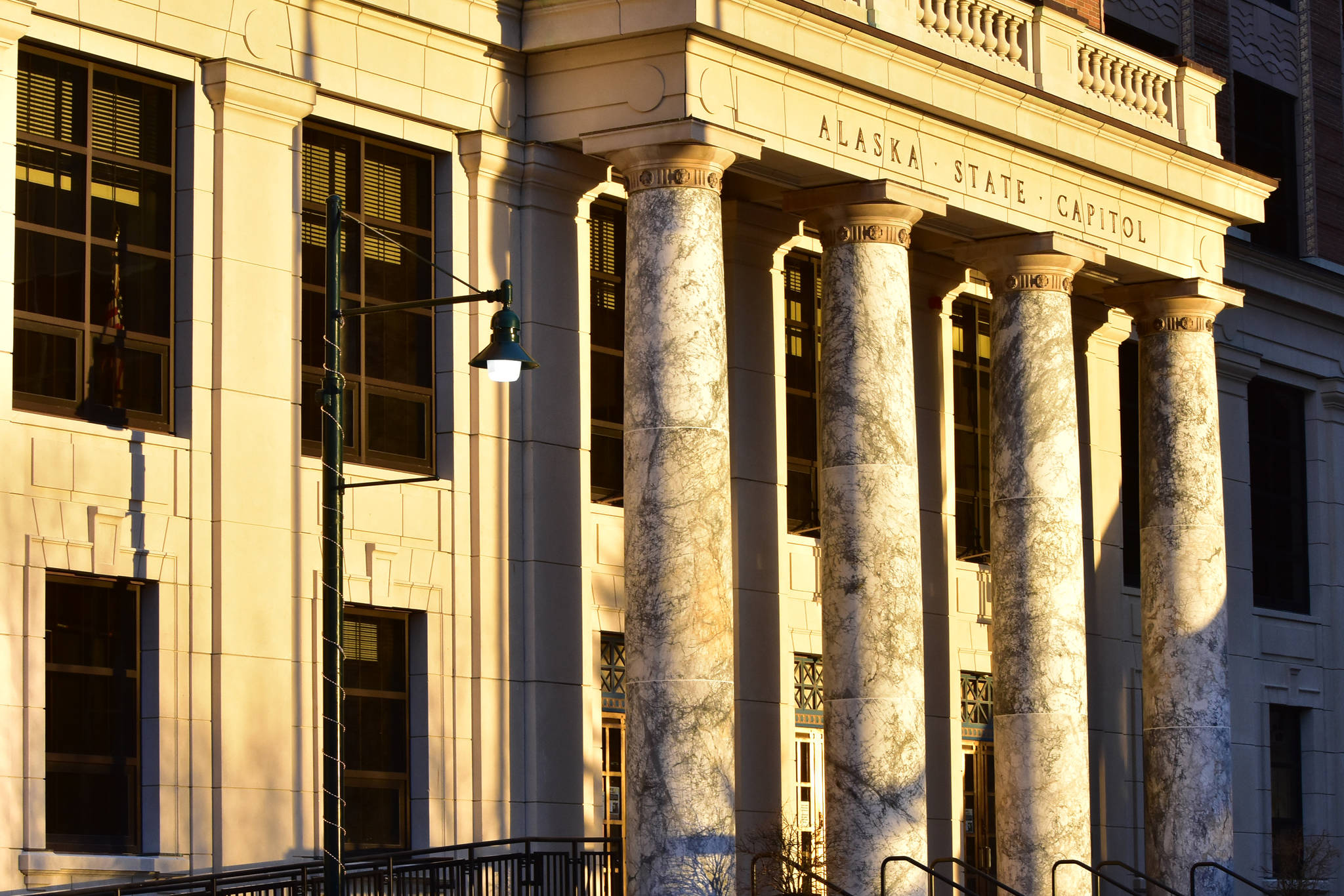By Win Gruening
In some ways, the first regular session of the Alaska State Legislature that gaveled in on Tuesday, Jan. 19, is similar to others in recent years. The session began with a Republican-organized Senate and a divided House. Fragile coalitions must negotiate competing fiscal solutions to resolve festering budget and permanent fund dividend concerns. Past legislatures have unsuccessfully wrestled with these issues and it remains to be seen whether this year will be different.
Beyond that, however, this session will be quite different. Visually, the installation of hundreds of plexiglass panels throughout the Capitol will remind everyone of the Legislature’s pandemic safety precautions (and its support of our oil industry — after all, plexiglass is a petroleum-based thermoplastic product).
Under new COVID-19 guidelines outlined by the Joint House-Senate Legislative Council Committee in December, the public will not have access to the Alaska State Capitol. However, the LCC recently agreed to allow one press representative in the House and Senate chambers each day.
Legislators and staff will be subject to regular testing as well as temperature checks and health questions before daily admittance to the Capitol. Anyone who refuses to comply will be denied entrance. Under the approved “Safe Floor Session Policy” legislative members may not congregate in chambers, and may not stand, but must sit at their desk behind a plexiglass screen, when making remarks on the floor.
Clearly, this will be a legislative session like no other.
[Legislative Council sets mask policy for upcoming session]
Fortunately, constituents will still be able to monitor all legislative proceedings in real time, as if they were there in person, or on demand if they are unable to watch live. This is due, in part, to several important improvements in Gavel Alaska coverage this session.
Since 1995, Gavel Alaska, a partnership of the City and Borough of Juneau and KTOO — Juneau’s public media outlet, has provided unedited live and recorded coverage of state government activities. Last year, funding for Gavel Alaska totaled almost $700,000, approximately 65% funded by CBJ, with the balance funded by KTOO and private donations.
Gavel Alaska provides daily television coverage of the Alaska Legislature, and other branches of state government, on KTOO 360TV (formerly 360 North), a full-time Alaska nonprofit public affairs television channel. It is broadcast in 38 locations statewide (on channel 15 in many GCI Cable markets). Gavel Alaska also reaches viewers in Alaska homes, offices and classrooms, with live and archived streams over the internet.
Until this year, live and recorded coverage was limited by camera and crew availability. In the event of multiple committee meetings and floor sessions, Gavel frequently had to prioritize which ones would be broadcast. That won’t be a problem this year.
KTOO and the Legislature worked together to install 39 remote-controlled cameras in House and Senate chambers and legislative committee rooms in the Capitol. The new cameras will be able to provide more coverage, and in higher quality. Beginning this session, Gavel Alaska will broadcast and/or stream all events live in high definition. Coverage will be archived for instant retrieval on the web for later viewing, if desired.
Rooms are now equipped with multiple camera locations and angles to allow all activity to be monitored. The Senate and House Chamber cameras will incorporate their electronic voting systems so viewers can monitor votes in real time.
The cameras will be operated remotely from KTOO’s studios in downtown Juneau. The public will have eyes and ears in almost every room in the Capitol even during the temporary COVID-19 restrictions. Oral and written testimony will continue to be facilitated via teleconference and email allowing constituents to be able to observe and testify at the Capitol virtually, without any risk of virus exposure.
Supplemented by $547,500 from the Juneau Community Foundation — not including $100,000 in project engineering and installation costs donated by KTOO — the Legislature funded $448,500, for a total of $996,000 to complete the project.
While some states are still struggling with how best to conduct their legislative sessions during a pandemic, your capital city’s commitment to continuing to enhance constituent access means Alaskans can be confident the public will still be able to visit and observe their Legislature during this critical time.
• Win Gruening retired as the senior vice president in charge of business banking for Key Bank in 2012. He was born and raised in Juneau and is active in community affairs as a 30-plus year member of Juneau Downtown Rotary Club and has been involved in various local and statewide organizations.

